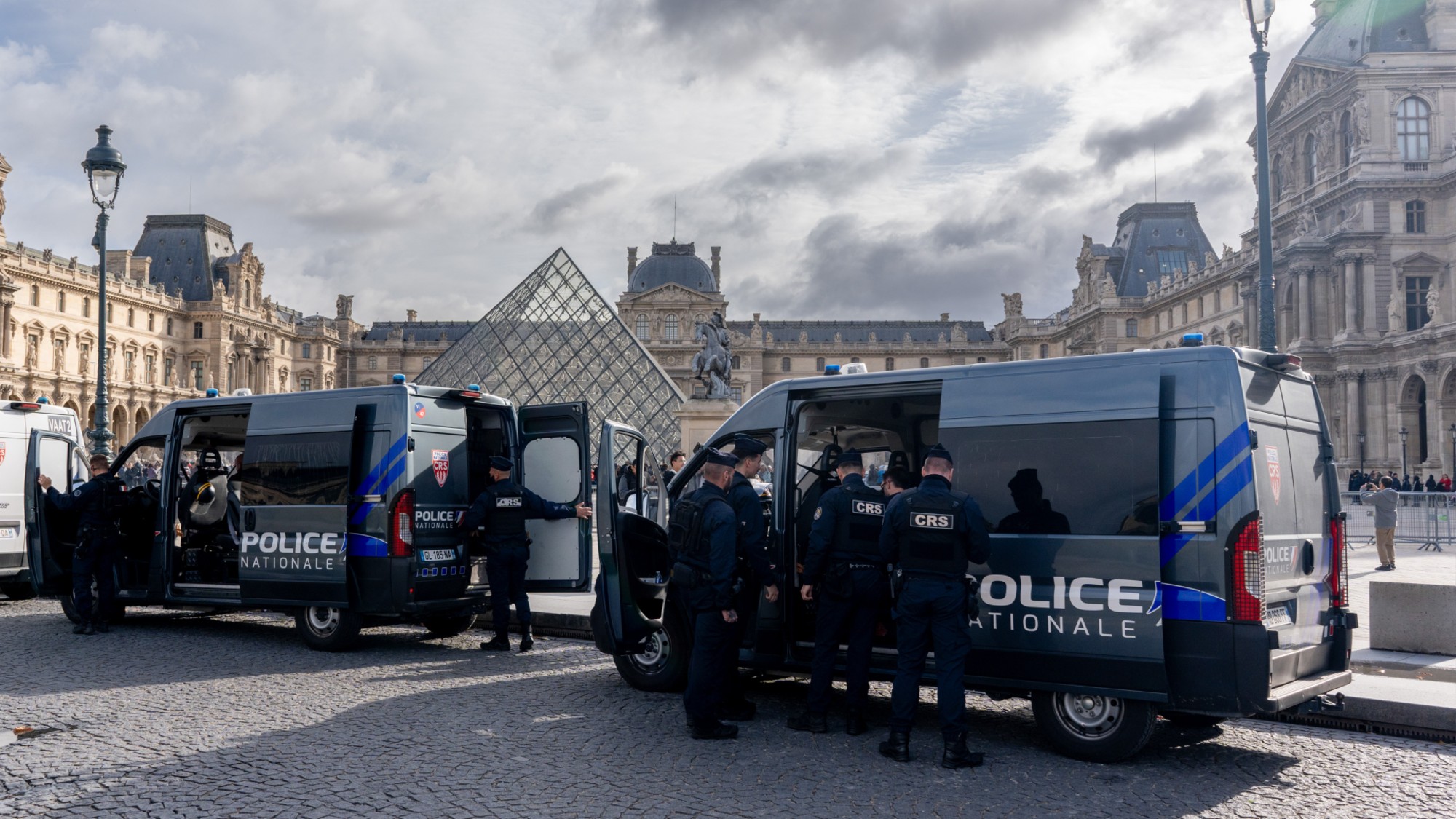The Louvre’s security measures are in hot water after a major heist
Millions of dollars in jewels were stolen from the Paris museum


A free daily email with the biggest news stories of the day – and the best features from TheWeek.com
You are now subscribed
Your newsletter sign-up was successful
While the investigation into the Oct. 19 heist at Paris’ Louvre continues, scrutiny is now focused on the museum’s security measures — or lack thereof. Considered one of the most significant robberies in museum history, the theft of France’s crown jewels worth an estimated $100 million — including a sapphire tiara and emerald necklace from the imperial family — is not the Louvre’s first. And some believe it’s time to reinforce its defenses.
Several factors at fault
The elaborate robbery, which involved thieves dressed as workers and an electric cherry picker, has “raised significant questions about whether one of the world’s most famous museums could have been better protected,” said The New York Times. Much of the blame has been placed on the Louvre’s security camera system. The building’s exterior is “surrounded by cameras,” but there “were not enough officers to continuously monitor the feeds.”
Other factors include the museum’s ongoing construction, which experts say could have provided an opening for the thieves. Several “labor unions at the Louvre said they had warned that continual renovations, repair work and scaffolding for fund-raising events done on or around the museum made it hard for employees to spot suspicious behavior.” The “more we have exterior people working around the Louvre, the harder it is to differentiate who should be there,” Julien Dunoyer, a 21-year veteran of the Louvre’s security team, said to the Times.
The Week
Escape your echo chamber. Get the facts behind the news, plus analysis from multiple perspectives.

Sign up for The Week's Free Newsletters
From our morning news briefing to a weekly Good News Newsletter, get the best of The Week delivered directly to your inbox.
From our morning news briefing to a weekly Good News Newsletter, get the best of The Week delivered directly to your inbox.
And there were warnings before the crime. The museum’s security systems were “rated as outdated and inadequate by an official report written before the theft of crown jewels,” said The Times of London. And several areas within the Louvre are not covered by security monitors. In the “Denon Wing, where the Apollo Gallery targeted by the robbers is located, a third of the rooms have no CCTV cameras,” though the specific room the thieves looted did have cameras, said officials.
The future
Security updates may happen not only in France but also in museums across the world, as the heist “should lead all institutions that hold valuable items to assess their security measures,” said Northeastern Global News. Even many “up-to-date technologies need to be assessed against the low-tech methods” that the Louvre thieves used. The robbery may “rewrite museum security protocols,” Nikos Passas, a professor of criminology and criminal justice and co-director of Northeastern’s Institute for Security and Public Policy, said to the outlet.
The Louvre does have planned security upgrades. But more simplistic ideas are available. While “modern museum security is a complex and expensive affair,” there’s also an “intriguing 50-year-old mathematical problem that deals with this very issue,” said BBC News. It involves calculating the “minimum number of guards — or equivalently 360-degree CCTV cameras — needed to keep a whole museum under observation.” As museums “look again at their own security in the wake of the Louvre heist, it can do no harm to be reminded of the lessons” this problem has to offer.
A free daily email with the biggest news stories of the day – and the best features from TheWeek.com
Justin Klawans has worked as a staff writer at The Week since 2022. He began his career covering local news before joining Newsweek as a breaking news reporter, where he wrote about politics, national and global affairs, business, crime, sports, film, television and other news. Justin has also freelanced for outlets including Collider and United Press International.
